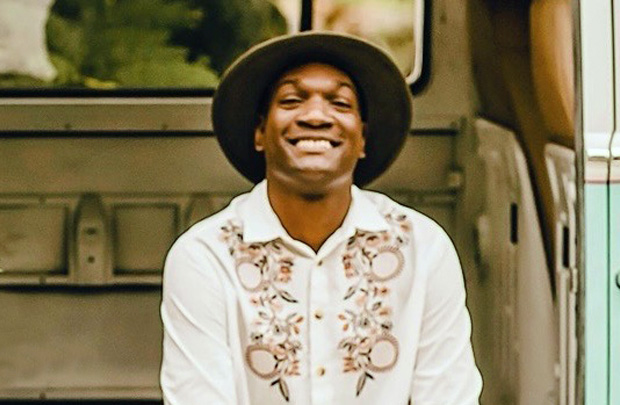
Antonio Fannin is an adoption caseworker in Virginia. He’s been working with children and families for the last four years. A mother recommended that we feature Antonio as an Outstanding Caseworker, writing:
“Antonio has gone above and beyond to help make our adoption from foster care simple. The girls absolutely loved working with him, and he was very relaxed and relatable. Antonio even took the effort to connect with our bio kids on visits, and it made a world of difference.”
How do you work with parents like the one who wrote to us?
I work with pre-adoptive families, which means that the children are in their homes and they are moving toward finalizing an adoption. It’s my goal to help the children settle in and ensure that they—and the parents—get the support they need. It’s a great job because I get to see families when they are at their best—at their highest point in the process. Some of these families have been working toward finalizing an adoption for several years, and this is the home stretch.
How do you support families?
There is a lot more support out there than families realize, and each family’s needs are different. I always work with families to find Medicaid-funded providers. That’s a starting point. As far as specific services, a lot of children benefit from attachment therapy. I work in a rural area, and I’ve connected several children with equine therapy. Educational supports are another common service.
The thing is to find that balance between providing services and over-servicing a child. I worked with one child recently who seemed to have an appointment every hour of the day! The challenge there was to give him something fun to do too—to find an outlet that was just for him, that didn’t involve a specialist.
There is a lot more support out there than families realize, and each family’s needs are different.
What is the most important quality of an adoptive parent?
In my mind, it’s about their love and their commitment to the child. Parents need to be there through thick and thin and facilitate services that will help their children thrive.
When I am working with families, I listen for what I call “love statements” when they talk about the child. When I hear those, I know that this is going to be their child, no matter what.
The mother who wrote to us was impressed by how you connected with her biological child. Do you make a priority of doing that with all families?
Absolutely! It can be hard when a new child comes into the home and gets so much attention. I do my best to incorporate the birth children and make them feel involved and make the adoption a family event. I’ve had some home visits where the bio child is the first person I talk with—the one who runs to the door eager to tell me what’s going on in their life!
What do you want families who are considering adoption to know?
Something that often surprises parents is that the support does not end when their adoption is finalized. I think it’s a common misconception that parents are left to their own devices after signing those papers. And that’s not true at all! It’s not uncommon for parents to contact us after a year or more asking for help—and we’re here to provide it.